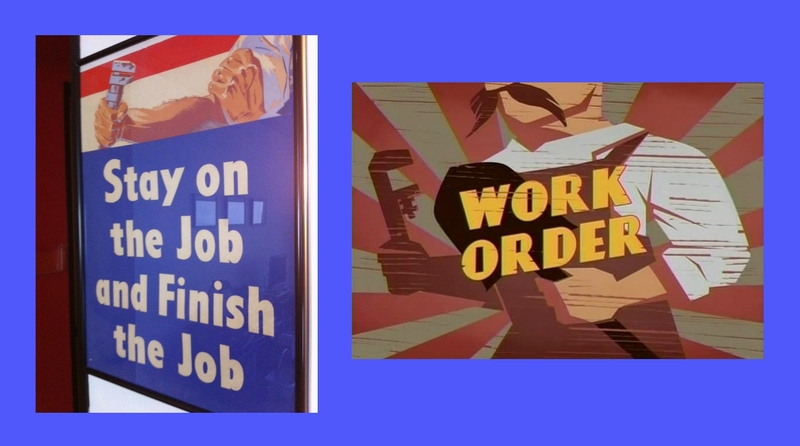While most cartoons in the 1950's and 1960's victimized and oppressed certain cultural groups, primarily minorities, I found it fascinating that these stereotypes are still openly swimming in today's cartoon industry. As a nanny, I usually shift the children's leisure time away from television programs and any materials associated with the mainstream industry. However, during my shift this week I softened my standards and got pushed over into letting one of the girls to watch an airing of her favorite cartoon "Penguins of Madagascar". During the viewing of the episode, I encountered yet another alarming element in the media.One of the characters in the show, a plumber, Gus portrays a clumsy, Russian meat-head, who owns a business entitled Babushka Plumbing.
As comical and innocently funny as his character might be, this depiction provokes the already existent negative connotations of the Russian community. Gus's broken English, his Lenin-based work ethic, and immense physical strength all translate into the endorsement of the Cold War tension that hurricaned through United States from the late 40's til the early 90's. As an immigrant, I found this episode to be extremely detrimental and offensive to the Russian demographic.It's immensely disappointing to see these constructions being fed to the youngest generation, due to the fact that such negative portrayal formulates a vicious cycle of oppression. Despite the fact that Cold War ended in 1991, American television still holds the division ground between United States and the "Soviets".
Question:
Do you find that the depiction of the above stereotype is directly correlated to the previous historic and political events? What do you think is the primary driving force for its release?

It seems pretty clear to me that the character you describe is a pure stereotype of the Russian worker, which comes straight out of fifty-year-old anti-Soviet Cold War propaganda.
ReplyDeleteIt would appear that on American television programs the oafish, inarticulate character always comes from a group labelled as "other" within US society. To answer your question, the "driving force" behind the widespread use of stereotypical depictions of so-called outsiders maintains the current power dynamic and helps the Majority (dominant white class)to feel superior. In an increasingly politically-correct age, perhaps the "other" in children's cartoons is less often African Americans or other minorities, but immigrants instead.
I am a little confused. Is this about the American television show Penguins of Madagascar on Nickelodeon? Because I will admit that I watch the Nickelodeon show and I do not see on the American show a representation of Communism. The show that I believe is communism is The Smurfs.
ReplyDeleteThe American Version does not have penguins that are simliar to Gus. However, from what you have posted I do see the lingering Communist values and representation. For those who still believe in Comunism the best way would be to teach it to the youth, through loveable characters.